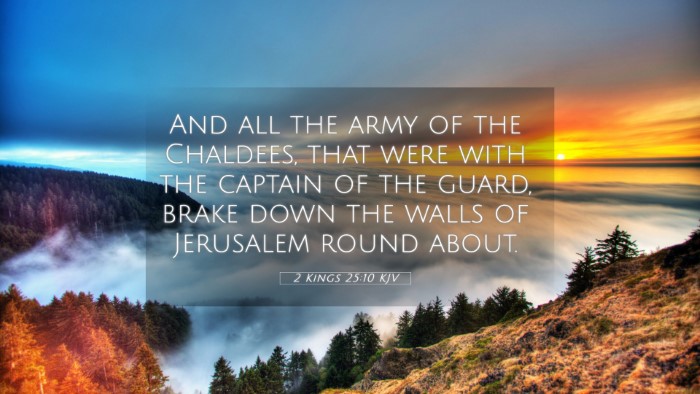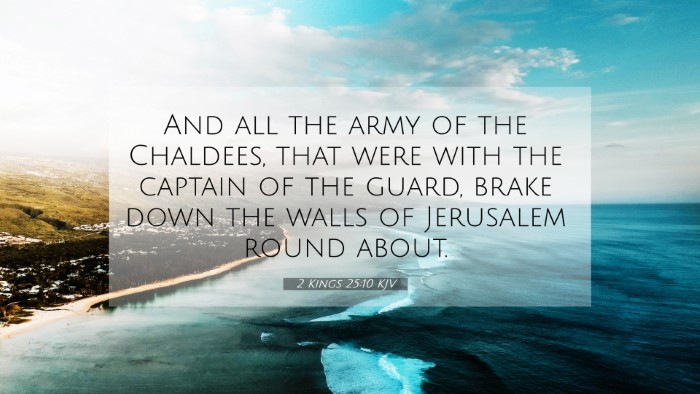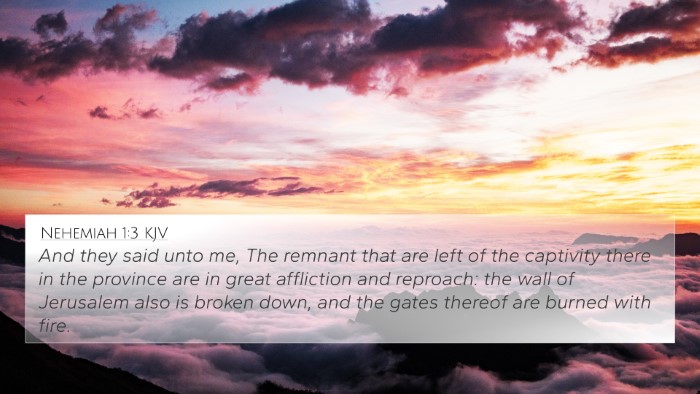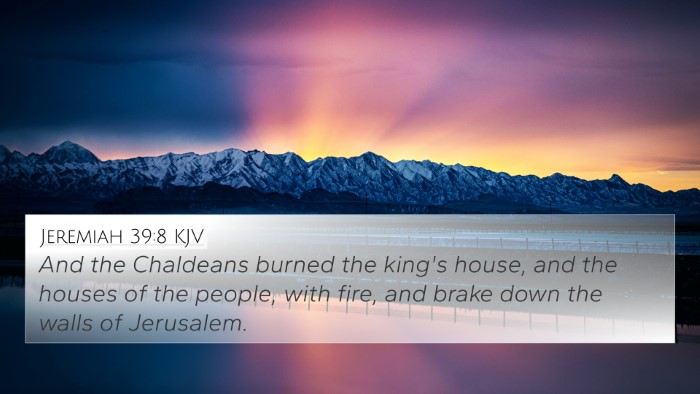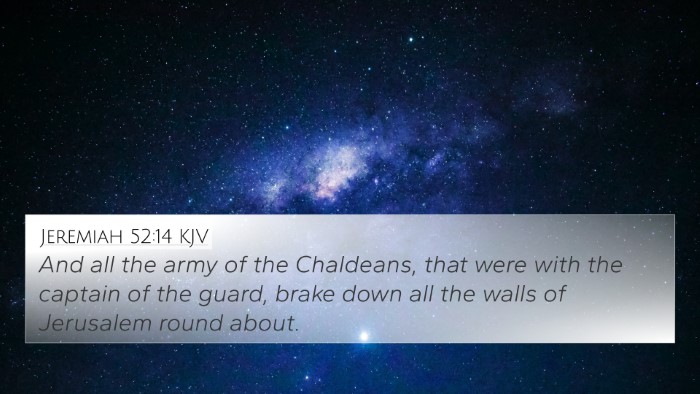Understanding 2 Kings 25:10
The verse 2 Kings 25:10 states:
"And the Chaldeans broke down the wall of Jerusalem round about."
This verse is a critical point in the narrative of the Babylonian siege and the fall of Jerusalem. Here, we explore its meanings, implications, and connections to other scriptures.
Summary and Interpretation
The event described in 2 Kings 25:10 marks the culmination of a tragic series of events for Jerusalem, symbolizing not only the physical destruction of the city but also the spiritual decline of God's people. Various public domain commentaries shed light on different aspects of this verse:
-
Matthew Henry's Commentary:
Henry emphasizes the significance of the wall of Jerusalem, which represented the city's strength and the security of its people. The breach of the wall thus symbolizes not only military defeat but also the abandonment of divine protection due to Israel's disobedience.
-
Albert Barnes' Notes:
Barnes notes the historical context, linking this event to prophecies concerning the fate of Jerusalem. He refers to earlier warnings from the prophets about the consequences of idolatry and sin, highlighting that this destruction was an expected judgment from God.
-
Adam Clarke's Commentary:
Clarke provides insights into the implications of the city's fall, emphasizing its role as a spiritual hub for the Israelites. The breaking down of the wall not only led to a physical vulnerability but also a significant shift in the community's identity; it crushed the hope that had been tied to their covenant with God.
Thematic Connections to Other Scriptures
This verse resonates with various other biblical texts that illustrate themes of judgment, destruction, and the consequences of turning away from God. Below are some significant cross-references:
- Jeremiah 52:14: Describes the destruction of the temple and the walls, reinforcing the prophetic warnings against Jerusalem.
- Lamentations 2:8: Highlights God's decision to destroy the wall, resonating with the grief and consequences of sin.
- Ezra 4:12: Touches on the opposition faced while rebuilding the walls of Jerusalem, illustrating the importance of these defenses.
- Isaiah 39:6-7: A prophecy regarding the Babylonian conquest, which foretells the outcome of Jerusalem's sin.
- Matthew 24:2: Jesus refers to the destruction of the temple, showing a continued theme of ruin associated with disobedience.
- Hebrews 12:26: Illustrates God's judgment against a disobedient people and denotes that, ultimately, His kingdom will stand.
- Revelation 21:2: Offers hope for a new Jerusalem, in contrast to the fallen state described in 2 Kings.
- Ezekiel 33:10-11: Compassionate call from God to repentance, reflecting on the fate of the people in Jerusalem.
- 2 Chronicles 36:19: Stresses the role of the destruction of walls and buildings as part of the fulfillment of God’s judgment.
Tools for Cross-Referencing Bible Verses
Understanding the significance of 2 Kings 25:10 can be greatly enhanced by utilizing various tools for cross-referencing Bible verses. These include:
- Bible Concordance
- Bible Cross-Reference Guide
- Cross-Reference Bible Study materials
- Bible Chain References
Conclusion
2 Kings 25:10 serves as a sobering reminder of the consequences of turning away from God while also prompting believers to look towards the hope promised in future texts. By exploring the connections established through thematic cross-referencing, one can gain deeper insight into the biblical narrative.
In summary, this verse not only conveys a historical event but also offers rich theological implications that resonate throughout the scriptures. Through comparative analysis and understanding its relation to other texts, we can appreciate the depth and continuity of God’s messages throughout the Bible.

